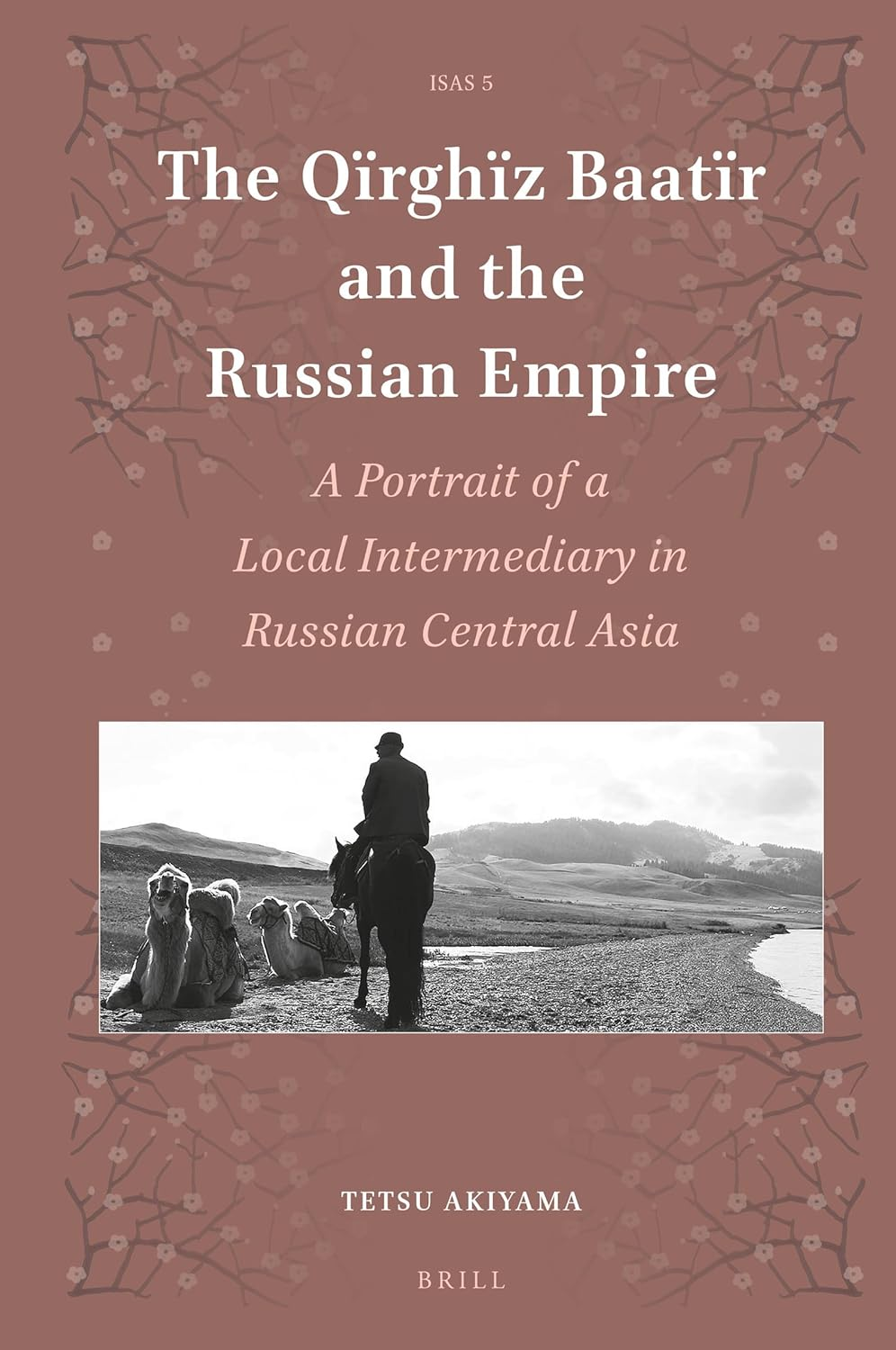
Nomadic Chieftain’s Biography Unveils Dynamics of Colonial Expansion
Reviewed by Aibarshyn Akhmetkali
The Qїrghїz Baatïr and the Russian Empire: A Portrait of a Local Intermediary in Russian Central Asia
Tetsu Akiyama. Brill, 2021.
“In the imperial borderlands, at the interface of the Russian authorities and the indigenous society, there inevitably existed figures who played a mediatory role between them. Shabdan was certainly such an intermediary.
Historian Tetsu Akiyama’s book offers an in-depth study of Shabdan Jantay uulu, the pragmatic Kyrgyz chieftain who led his people during 19th-century Russian imperial expansion into Central Asia. Jantay uulu stands out for having balanced the interests of the colonizers and his own people amid shifting power dynamics in the region. Relying on primary native-language sources, the monograph enriches scholarship previously built off only colonial records. In the mid19th century, Central Asia constituted a vast territory occupied by related nomadic groups of Uzbeks, Kazakhs, Kyrgyz and Oirats (Kalmaks). Local elites, surrounded by the Kokand Khanate, the Russian Empire and the Qing Dynasty, consolidated authority through military prowess and by raiding neighboring tribes and clans. That’s when Jantay uulu’s military reputation earned him the honorific title of baatïr (hero/warrior). As Russian rule advanced deeper into Central Asia, his growing influence helped position him as an intermediary earning both the trust of local communities and the favor of Russian officials in their military quest against the Kokand Khanate. In showing Jantay uulu’s role as mediator, Akiyama challenges the narrative that the Kyrgyz were a “static and monotonous ‘traditional’ society’” destined to be subsumed by the Russian Empire. With its storytelling approach, the book will appeal to a wide readership looking to understand the dynamics shaping colonialism.
You may also be interested in...

Work Reveals Common Ground Across Massive Desert
The Sahara wasn’t always a desert. Around 9000 BCE it was a bucolic expanse where animals and lush vegetation thrived.
Umayyad Family Dynasty Creates Unprecedented Empire
Explore the development and history of the Umayyad Caliphate, one of the most consequential empires the world has ever known.
Drawing New Conclusions About the Status of Women in Ancient Egypt
Egyptologist Mariam F. Ayad that gender bias among historians accounts for an underrepresentation of women’s lives in historical studies of Egypt.